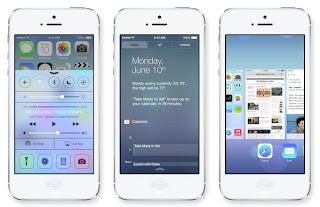But will Apple’s new ‘curated selection’ features curb unauthorised in-app purchases?
With the launch of Microsoft’s XBOX One, Sony’s PS4 and
Nintendo’s slew of new games titles this week, you could be forgiven for
feeling a bit indifferent about tech news.
Yet while the gaming world went into overdrive, Apple
announced some remarkable changes of their own.
At Apple’s Worldwide Developers Conference 2013 (WWDC) all
eyes were on the release of its new operating system. While many were in awe of
the dramatic design changes, Eddy Cue, Apple’s Service Boss explained a feature
that ‘parents are going to love’: the upcoming addition of a new Kids category
to the firms App Store.
While the presentation swiftly passed over this, and on to
their more mainstream releases such as the new Apple iRadio, parents and
children’s app developers were left wanting to hear more.
Never one to shy away from a challenge we took it upon
ourselves to investigate further the key features and to bring you a round-up
of what the new Kids’ category means for parents and educators.
Following the announcements this week, Apple’s media centre explained that with
these new features, ‘Now parents and teachers can quickly find apps that are
perfect for their children. Just visit the new Kids category for a curated
selection of age-appropriate apps.’
Currently all apps are assigned a broad age-recommendation
grade – 4+, 9+, 12+ or 17+, but the new changes will see a more granular system
introduced.
In terms of simple search and discovery of iOS apps, the new
categorisation will be a welcomed update for parents, since currently many of
the apps targeted at children are scattered among education, entertainment,
games and book categories. This leaves young people open to viewing and
potentially downloading inappropriate content. And while Apple’s curators have
made attempts to resolve this by introducing ‘New & Noteworthy’ sections as
well as themes, e.g. GCSE revision, the new Kids category is a leap on from
that.
EdTech social journalists have also commented on the new
category update from Apple, with many of them suggesting that the new kids
section may be the start of a safeguarding process. This is not without reason,
as while the new category greatly improves search and discovery, in future
months Apple could introduce specific rules for developers. They would be
required to follow them in order for their app to qualify for this category,
such as restricting in-app purchases and removing, or at least enforcing,
stricter guidelines around in-app advertisements.
Apple’s recent updates have been eagerly anticipated by many
but there is still a sense that the conglomerate could be doing more to
safeguard children, such as a kids mode or parental control feature that allows
an administrator device to track, monitor and restrict content on other devices.
Microsoft successfully launched their Kid’s Corner on the
Windows 8 phone in 2012 and with the increasing media attention towards
unauthorised in-app purchases it can only be a matter of time before Apple has
to step up in a similar way, and announce a comprehensive response to this issue of their own, surely?

